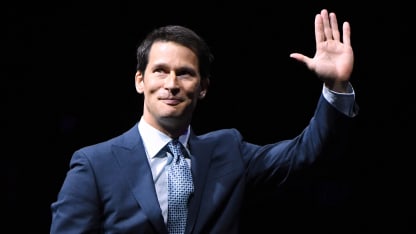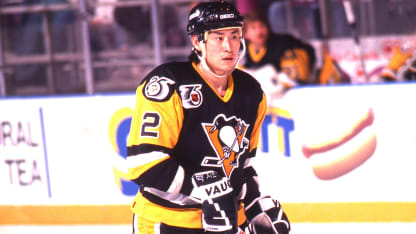"When I was growing up, we watched 'Hockey Night in Canada' religiously on Saturday night, the family, for years," said Bawa, who played 61 games with the Capitals, Canucks, Sharks and Mighty Ducks in five seasons (1989-94). "Fast forward now, the same thing is happening with these Punjabi families. They sit down and watch it together as a family, 'Hockey Night in Canada Punjabi.'"
As for team ownership, Kim Pegula, a South Korea-born, American businesswoman, is an owner and president of the Buffalo Sabres and co-chair of the NHL's Executive Inclusion Council.
Warren Woo is an owner of the Nashville Predators and is Asian American.
Dr. Jeong H. Kim is Korean American and a partner with Monumental Sports & Entertainment, which owns the Washington Capitals.
They are esteemed members of their business communities.
When the Tampa Bay Lightning began play in 1992-93, it was operated by Kokusai Green Co. Ltd., a Japanese golf resorts company headed by CEO Takashi Okubo.
Charles Wang, who was born in Shanghai and raised in New York, was majority owner of the Islanders from 2000-16.
Horn Chen, a Chinese American businessman, had a minority stake in the Blue Jackets.
Norman "Normie" Kwong, a running back in the Canadian Football League and later lieutenant governor of Alberta, was part of the ownership group that brought the Atlanta Flames to Calgary in 1980. The son of Chinese immigrants is one of the few people with his name etched on both the Stanley Cup, which the Calgary Flames won in 1989, and the CFL's Grey Cup, which he won for each of his four championships.
"The game is growing," Bawa said. "It's good to see."






















